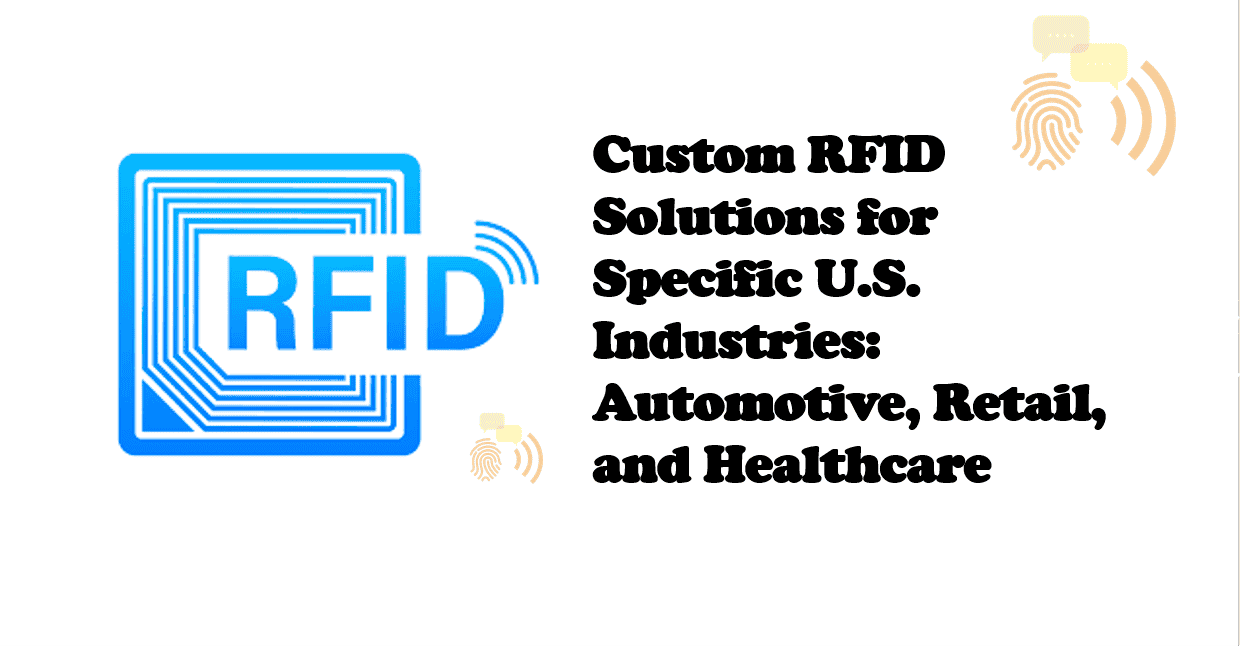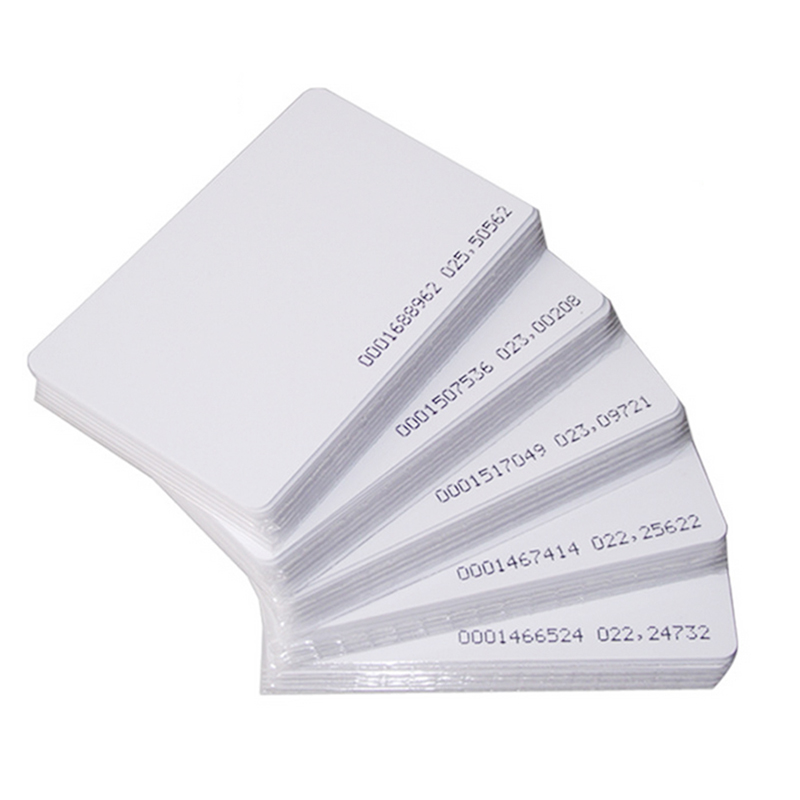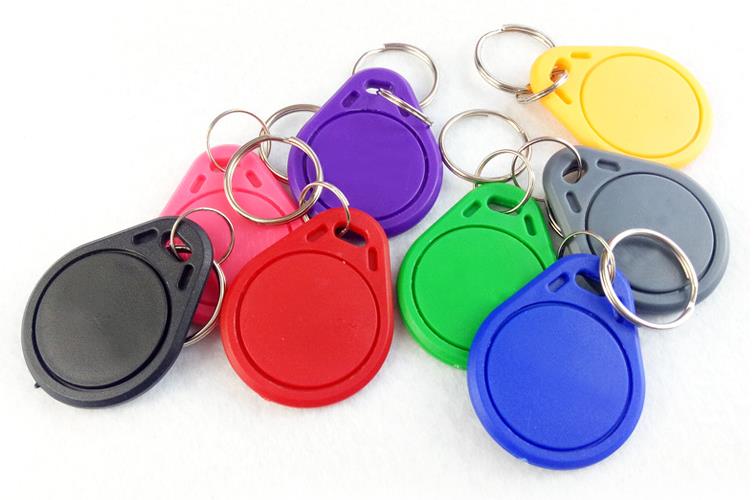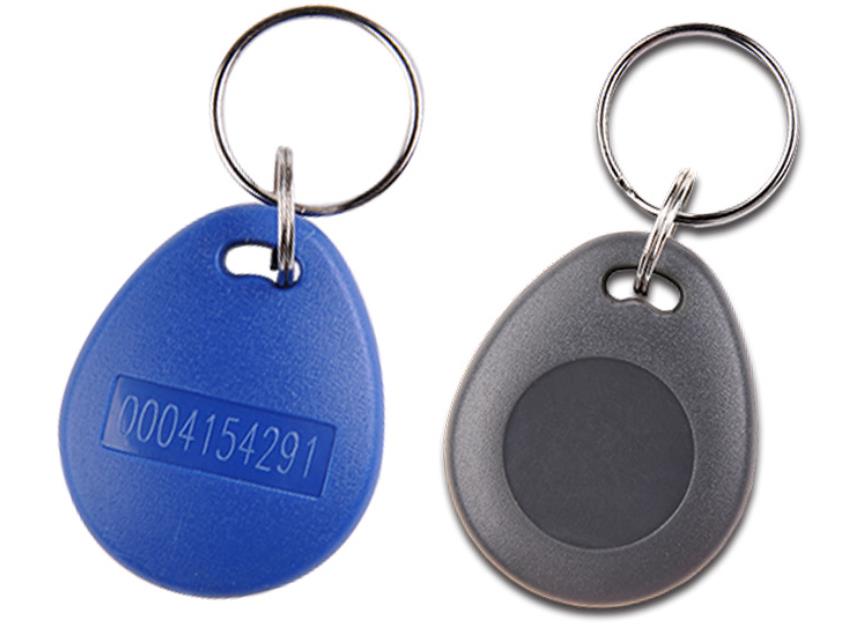Custom RFID Solutions for Specific U.S. Industries: Automotive, Retail, and Healthcare
Radio Frequency Identification (RFID) technology is revolutionizing industries across the globe, providing businesses with a powerful tool to automate processes, improve efficiency, and reduce costs. Custom RFID solutions are increasingly becoming essential in U.S. industries like automotive, retail, and healthcare. These industries require tailored RFID systems to address their unique needs, from inventory tracking and supply chain management to patient care and asset management.
In this article, we’ll explore how custom RFID solutions are transforming these key U.S. industries and discuss specific use cases to illustrate their impact.
Table of Contents
- Introduction
- Automotive Industry: Enhancing Manufacturing and Supply Chain Efficiency
- Retail Industry: Revolutionizing Inventory and Customer Experience
- Healthcare Industry: Improving Patient Care and Asset Management
- Conclusion: Custom RFID Solutions for a Competitive Edge
1. Automotive Industry: Enhancing Manufacturing and Supply Chain Efficiency
The automotive industry is a highly complex sector with a global supply chain that demands precision and real-time tracking of parts and components. Custom RFID solutions in the automotive sector focus on streamlining manufacturing processes, inventory management, and logistics.
Key Use Cases:
-
Parts and Component Tracking: RFID tags are used to track individual parts as they move through the manufacturing process, ensuring the right components are available at each stage. These tags can store detailed information about the part, such as its origin, specifications, and quality control checks.
-
Supply Chain Management: RFID technology provides real-time data about the location and status of parts as they are transported from suppliers to manufacturers and then to assembly lines. This visibility improves communication between suppliers, manufacturers, and distributors, reducing the risk of delays or inventory shortages.
-
Vehicle Identification and Authentication: Custom RFID tags can be embedded in vehicles to track them throughout their lifecycle—from production to sale and even to maintenance. By scanning RFID tags, manufacturers and dealers can ensure that vehicles are correctly identified, minimizing errors and fraud.
Benefits:
- Reduced production delays
- Increased accuracy in inventory management
- Enhanced tracking of parts and vehicles
- Improved quality control
2. Retail Industry: Revolutionizing Inventory and Customer Experience
The retail industry in the U.S. is highly competitive, and businesses are constantly seeking ways to enhance operational efficiency while improving the customer experience. Custom RFID solutions in retail are primarily used to automate inventory management, streamline supply chains, and enhance in-store experiences for customers.
Key Use Cases:
-
Inventory Management: Custom RFID tags allow retailers to track inventory in real time. Each product can be tagged with an RFID chip that provides detailed information about stock levels, location, and sales performance. This data can be accessed via handheld RFID readers or integrated into retail management software systems to help with stock replenishment and shelf space optimization.
-
Asset Tracking: RFID tags are used to track high-value assets such as display fixtures, electronics, or equipment within the store. This helps reduce theft and misplacement, ensuring that assets are always accounted for.
-
Enhanced Customer Experience: RFID technology enables retailers to create personalized shopping experiences. For example, RFID-enabled smart shelves can notify staff when stock is running low, or provide customers with detailed product information via interactive displays as they browse the store.
-
Loss Prevention: With RFID tags on every product, retailers can automatically track items moving through their stores, reducing the likelihood of theft. RFID-based security systems can also prevent unauthorized items from leaving the store.
Benefits:
- Better inventory accuracy and stock visibility
- Reduced labor costs and improved operational efficiency
- Enhanced customer engagement and experience
- Reduced shrinkage and inventory loss
3. Healthcare Industry: Improving Patient Care and Asset Management
The healthcare industry is one of the most critical sectors in the U.S., where precision and efficiency are of utmost importance. Custom RFID solutions in healthcare are designed to improve patient safety, track medical equipment, and streamline workflows within hospitals and clinics.
Key Use Cases:
-
Patient Tracking and Identification: RFID wristbands are used to identify patients quickly and accurately. These wristbands contain RFID tags that store essential patient data such as name, medical history, allergies, and treatment plans. Healthcare providers can scan these tags to verify patient identity, ensuring that the right treatment is given to the right person.
-
Medication Management: RFID is used to track medication within hospitals, ensuring that the right drugs are administered to patients at the right time. RFID can also prevent medication errors by confirming the medication, dosage, and patient identity before administration.
-
Asset Tracking: RFID tags are placed on medical equipment, such as wheelchairs, infusion pumps, and diagnostic tools. This allows healthcare facilities to track the location and availability of essential equipment, minimizing downtime and ensuring that devices are properly maintained.
-
Staff and Visitor Management: RFID-based access control systems can enhance hospital security by controlling staff and visitor access to sensitive areas. This ensures that only authorized personnel can access restricted zones, such as operating rooms and pharmaceutical storage.
Benefits:
- Improved patient safety and reduced medical errors
- Enhanced asset management and equipment utilization
- Streamlined hospital workflows
- Improved regulatory compliance
Conclusion: Custom RFID Solutions for a Competitive Edge
In industries such as automotive, retail, and healthcare, RFID technology has become an indispensable tool for streamlining operations, improving accuracy, and providing real-time data that drives decision-making. Custom RFID solutions tailored to the specific needs of each industry enable businesses to achieve greater efficiency, reduce costs, and improve customer and patient satisfaction.
As RFID technology continues to evolve, we can expect even more innovative applications to emerge, further transforming these industries and creating new opportunities for growth. Whether it’s tracking components in the automotive sector, optimizing inventory management in retail, or enhancing patient care in healthcare, custom RFID solutions offer a competitive edge that businesses can’t afford to ignore.
By embracing these tailored RFID solutions, organizations across the U.S. can stay ahead of the curve, ensuring a smarter, more efficient future.



